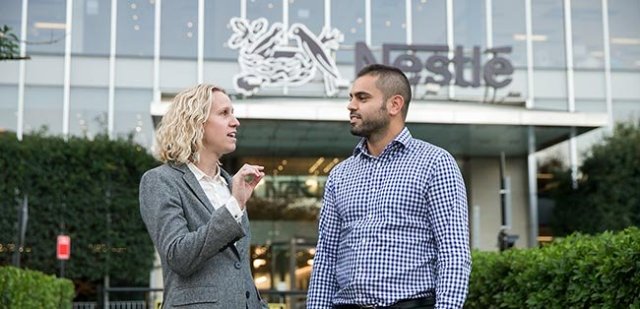
Nestlé is investing up to US$2.07 billion to lead the shift from virgin plastics to food-grade recycled plastics and to accelerate the development of innovative sustainable packaging solutions.
Building on its 2018 commitment to make 100 per cent of its packaging recyclable or reusable by 2025, Nestlé will reduce its use of virgin plastics by a third in the same period whilst working with others to advance the circular economy and endeavor to clean up plastic waste from oceans, lakes and rivers.
According to the company, food quality and safety are paramount, and packaging plays a major role in assuring this.
As most plastics are difficult to recycle for food packaging, leading to a limited supply of food-grade recycled plastics, Nestlé is committing to sourcing up to 2 million metric tons of food-grade recycled plastics and allocating more than US$1.54 billion to pay a premium for these materials between now and 2025.
Nestlé said it will seek operational efficiencies to keep this initiative earnings neutral.
In addition, the company has allocated almost US$257 towards the launch of a sustainable packaging venture fund to invest in start-up companies that focus on packaging innovation, including new materials, refill systems and recycling solutions.
“No plastic should end up in landfill or as litter. Making recycled plastics safe for food is an enormous challenge for our industry,” Nestlé CEO Mark Schneider said.
“That is why in addition to minimising plastics use and collecting waste, we want to close the loop and make more plastics infinitely recyclable. We are taking bold steps to create a wider market for food-grade recycled plastics and boost innovation in the packaging industry.
“We welcome others to join us on this journey.”
GlobalData consumer insights analyst Shagun Sachdeva said as society as a whole embraces environmental awareness and protection, consumers expect brands to reflect those and act responsibly in their commitments right from sustainable methods of production, ingredient-sourcing to packaging.
Against this backdrop, the strategic move to shift from virgin plastics to food-grade recycled plastics are part of Nestlé’s larger focus to make 100 per cent of its packaging recyclable by 2025, Sachdeva mentioned.
“GlobalData 2019 Q3 consumer survey reveals that 53 per cent consumers in Asia-Pacific (APAC) consider easy to recycle factor while making the purchase decision, whereas eight per cent consumers want their product to be plastic-free and seven per cent consumers look for a product made from sustainable or renewable sources,” Sachdeva said.
“Last year, Ikea and Nestlé partnered to replace 100 per cent fossil oil with bio-based renewable resources. Other companies such as Nissin Foods, Suntory Holdings, Hindustan Unilever (HUL) and Procter & Gamble Co also shifted towards sustainable packaging.
“These packaging innovations from consumer companies are indicative of how these companies are proactively taking the onus to convince consumers beyond marketing by committing themselves to justify the environmental impact of their products and business activities.
Such sustainability initiatives will not only deliver near-term gains to the companies, but also bring in long-term ethical culture and process changes that will lead to scalable efficiency advances.”


